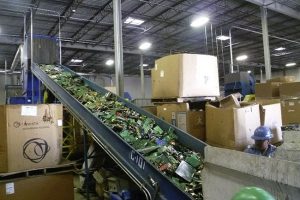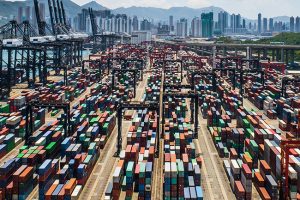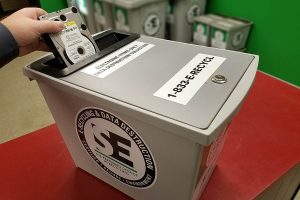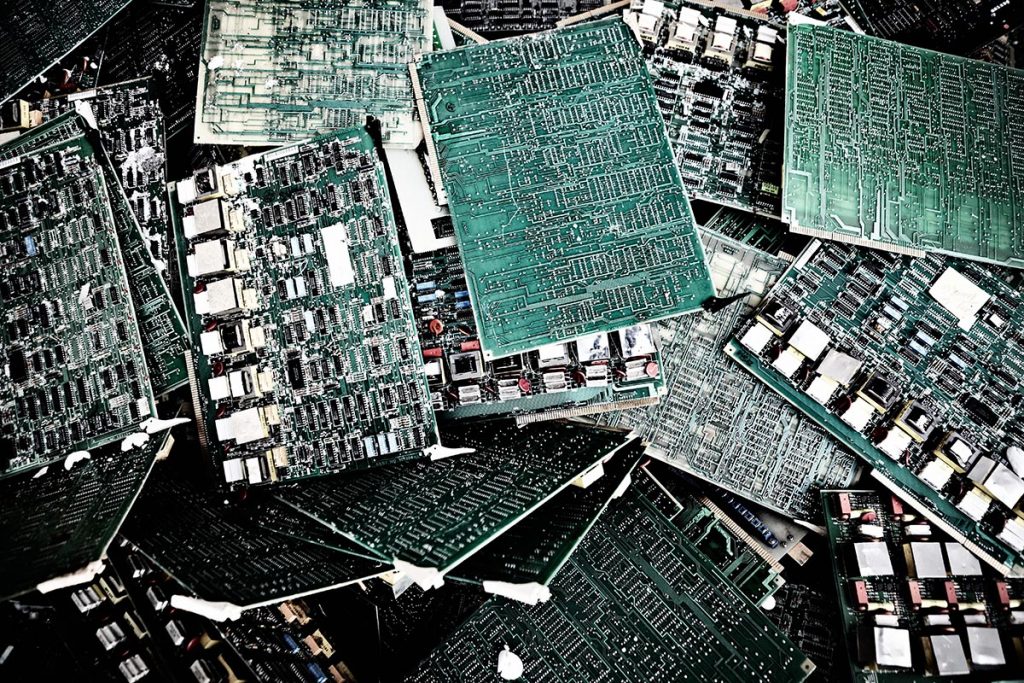
The Schupan & Sons headquarters in Kalamazoo, Mich.
Schupan & Sons is upgrading its Kalamazoo, Mich. campus with an expansion of its e-scrap operations and a dedicated health care clinic for company employees.
E-Scrap News magazine is the premier trade journal for electronics recycling and refurbishment experts. It offers updates on the latest equipment and technology, details trends in electronics recycling legislation, highlights the work of innovative processors, and covers all the other critical industry news.
Sign up for our free weekly e-newsletters to receive the latest news directly.

The Schupan & Sons headquarters in Kalamazoo, Mich.
Schupan & Sons is upgrading its Kalamazoo, Mich. campus with an expansion of its e-scrap operations and a dedicated health care clinic for company employees.

Hai Phong, Vietnam
Reverse supply chain management company Re-Teck has launched a new facility in northern Vietnam’s largest port city.
 Results of a new study suggest e-scrap workers must wipe their hands multiple times at the end of their shifts to remove toxic flame retardants.
Results of a new study suggest e-scrap workers must wipe their hands multiple times at the end of their shifts to remove toxic flame retardants.
 According to the results of a recent poll, 18 percent of consumers would do nothing if they found personal data on a used device they purchased. A quarter say they’d contact authorities.
According to the results of a recent poll, 18 percent of consumers would do nothing if they found personal data on a used device they purchased. A quarter say they’d contact authorities.
 E-scrap exports to Hong Kong will require more due diligence beginning in January, when the semi-autonomous region implements new import and recycling permit requirements.
E-scrap exports to Hong Kong will require more due diligence beginning in January, when the semi-autonomous region implements new import and recycling permit requirements.
DataSafe of Sacramento, Calif.; Embassy Records Management and Storage of College Station, Texas; Gone For Good of Fairfield, Calif.; MARCO of Fenton, Mo.; MinnKota Secured Document Destruction of Fargo, N.D.; SelectShred of Stuart, Fla.; Shred N Go of Edina, Minn.; Shred-X Secure Destruction of Idalia, Queensland, Australia and The Paper Predator by DDC of Kentucky of Shelbyville, Ky. have either achieved or renewed their NAID certifications for physical destruction of hard drives.
Also, Maven Technologies of Rochester, N.Y. and Reclamere of Tyrone, Penn. have achieved their NAID certifications for hard drive sanitization and physical destruction of hard drives.
PC Server & Parts of New Hudson, Mich. has achieved R2, ISO 14001 and OSHAS 18001 certifications.
Visit our archive to view previous editions of the scorecard.
 Two men accused of stockpiling and taking steps to illegally dispose of CRT glass have pleaded guilty to federal hazardous waste violations. One of them has been sentenced to probation.
Two men accused of stockpiling and taking steps to illegally dispose of CRT glass have pleaded guilty to federal hazardous waste violations. One of them has been sentenced to probation.
 A major retailer will pay $7.4 million to settle allegations it again broke California law by illegally tossing used electronics and hazardous materials in the garbage.
A major retailer will pay $7.4 million to settle allegations it again broke California law by illegally tossing used electronics and hazardous materials in the garbage.
 Sadoff Iron and Metal Co. will pivot the focus at one of its facilities away from scrap metals and toward electronics recycling.
Sadoff Iron and Metal Co. will pivot the focus at one of its facilities away from scrap metals and toward electronics recycling.
 A metals company will expand capacity at a Swedish copper smelter that consumes substantial volumes of printed circuit boards.
A metals company will expand capacity at a Swedish copper smelter that consumes substantial volumes of printed circuit boards.

